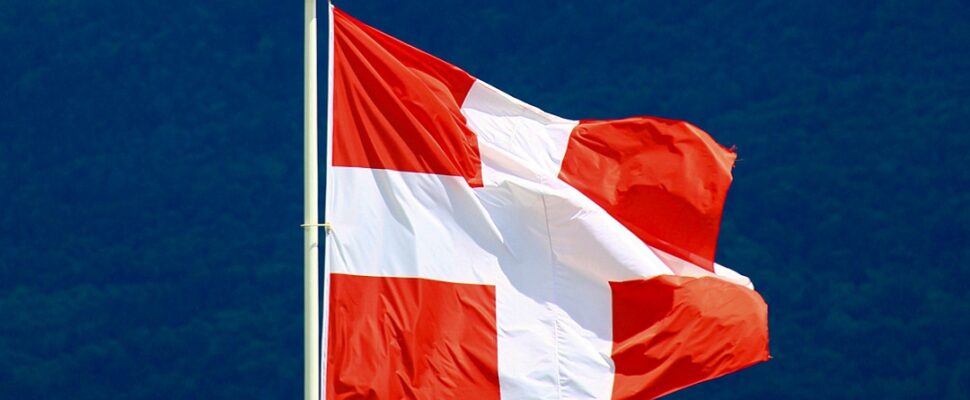While the Swiss biotech sector is inevitably facing many of the same funding challenges as the global industry and is still struggling to make a meaningful comeback from its 2022 slump, the latest report from the Swiss Biotech Association and EY shows the sector’s resilience with the record revenues of CHF 7.3 billion it achieved in 2023.
In 2023, the Swiss biotech industry saw a record of CHF 7.3 billion in revenues recognized and was able to raise more than CHF 2 billion in capital investments – an increase of over 50% from 2022
Frederik Schmachtenberg
EY Life Sciences
Revenue Growth, R&D Spending Drop
The biotech industry as a whole is still contending with funding difficulties and struggling to bounce back from its post-COVID-19 financing decline. Globally, total biotech IPO funding has seen a significant drop, with only USD 3.4 billion raised in the first three quarters of 2023 as opposed to USD 16.0 billion for the same period in 2021.
Although Switzerland is not immune to these challenges, the country’s biotech industry continues to attract significant investments, as the new Swiss Biotech report shows, and last year surpassed 2022’s CHF 6.8 billion with CHF 7.3 billion in recognized revenues. While R&D investments did drop from CHF 2.7 billion in 2022 to CHF 2.4 billion in 2023, according to the new report the full-time staff employed by the industry has remained stable.
Climb in Capital Investments
Despite the current less-than-favourable climate for biotech financing, the Swiss biotech sector managed to raise over CHF 2 billion in 2023 versus the CHF 1.3 billion it collected in 2022, with around CHF 1.4 billion raised by public companies and CHF 0.6 billion by private companies.
At the top of the list of private financing transactions are the company focused on orphan neurological disorders, Noema Pharma, which managed to raise CHF 103 million, followed by Alentis Therapeutics, developer of first-in-class anti-Claudin-1 (CLDN1) antibodies for cancer, with CHF 94 million.
Just one Swiss biotech, ophthalmic specialist Oculis, went public in 2023, with a SPAC transaction on NASDAQ that was successfully completed in March 2023 and with gross proceeds of USD 104 million, plus follow-on financing with another USD 40 million raised in May 2023.
Meanwhile, MoonLake Immunotherapeutics with its novel inflammation technology, one of the two Swiss biotech companies to go public in 2022, was able to gain additional funds from investors through a follow-on transaction as well as from a market-share programme that totalled some CHF 415 million.
M&A, Collaborations and Licensing Agreements
Within the Swiss biotech ecosystem, M&A activity has also managed to remain dynamic with several Swiss companies involved in significant M&A transactions in 2023 and the beginning of 2024.
Examples include the acquistion by scientific instruments maker Bruker of a majority stake in the proteomics company Biognosys AG and the CDMO Siegfried’s acquisition of a 95 percent stake in DiNAMIQS as a best-in-class development and manufacturing platform for cell and gene therapies.
In other deals, gastrointestinal specialist Ironwood Pharma bought VectivBio with its lead candidate, a GLP-2 analog for rare gastrointestinal diseases, for more than USD 1 billion, and Italy’s Abiogen Pharma acquired a 97.09 percent stake in for niche and orphan indications company EffRx. Moreover, Pierre Fabre purchased Vertical Bio and its innovative targeted therapy candidate for patients suffering from non-small cell lung cancer with MET alteration.
2023 also saw important collaboration and licensing agreements for several Swiss biotechs, providing them with funding alternatives to equity or debt financings, which continued to be more difficult to get a hold of in 2023. A few such agreements were EraCal and Nestle Health Science’s collaboration on anti-obesity treatments; CRISPR Therapeutics’ licensing deal with Vertex worth up to USD 330 million for hypoimmune cell therapy development, and Relief Therapeutics’ USD 46.5 million license agreement for Olpruva for urea cycle disorders with Acer Therapeutics.
Not without Struggle
Despite the encouraging numbers and positive outlook on the M&A front, according to the report, 2023 was also a difficult year for some of Switzerland’s biotech innovators, several of which were forced to undergo restructuring efforts, or resort to other drastic measures in order to stay afloat.
To avoid shutting down, the natural molecule specialist Evolva, for example, sold all of its business operations to Danstar Ferment AG, a Swiss affiliate of Lallemand, for CHF 20 million. And to reverse its bankruptcy procedures, Basel-based Kinarus went into a merger with Curatis. And, in the most dire case, ObsEva after the approval failure of its uterine fibroid candidate in 2022 and its subsequest struggles to survive finally delisted from the Nasdaq and SIX.
Increase in Approvals
The level of approvals from Switzerland’s regulatory agency, Swissmedic, rose from 47 in 2022 to 49 in 2023 and among the FDA’s record number of approvals last year -55 new drugs compared to 37 in 2022- , were two new drugs developed by Swiss companies.
Santhera Pharmaceuticals’ vamorolone for the treatment of Duchenne Muscular Dystrophy (DMD) received approval along with the CRISPR/Cas9 gene-edited treatment co-developed by CRISPR Therapeutics and Vertex Pharmaceuticals for sickle cell disease. Both drugs were then approved in Europe.



